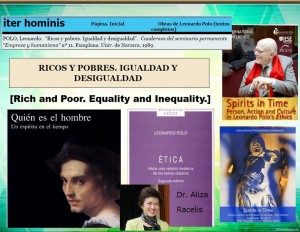共有型成長
Dr. Aliza Racelis in Sustainable Shared Growth Seminar #20
Conceptions of Environment & Coexistence according to the Spanish philosopher Leonardo Polo: Implications for Sustainability Education
ABSTRACT
The functional integrity of the ecology requires balance between the demands of economic development and the preservation of the ecology and balance in satisfying the needs of current versus future generations: work, collaborative sharing and the care of the earth are at the heart of what it is to be human and are constitutive of the order of divine creation (Barrera, 2010).
Ethics of care and concern for specific aspects of the common good seem crucial in any environment, as do personal values, character, and leadership. The ethical influences of human institutions have quite immediate and individual impacts (Racelis, 2014b). We observe that the human person is a being of opportunities, of choices or alternatives, a family and social being, a being who invents, a being capable of unrestricted growth in time. Man’s social being belongs to his manifestative relationship with the world, also referred to as intersubjectivity. Given that the human essence has been created to grow, each person is responsible for rectifying all intersubjective relationships that can inhibit such growth, and nourish those which enable such development (Racelis, 2014a).
The Spanish philosopher Leonardo Polo had proposed four “anthropological transcendentals”, namely: (1) Personal Co-existence, (2) Personal Freedom, (3) Personal Intellection, and (4) Personal Love (Sellés, 2013). Co-existence is not mere living with, dwelling in or coinciding with, but rather it refers to the personal being’s being personally open in his intimacy. Polo (1997) says: “Loyalty and justice are conditions for the coexistence of free systems. But there is more: truthfulness, friendship, the most important of the virtues according to Aristotle. Polo (1991) likewise emphasizes that the human being, no matter what his journeys and difficulties, can always grow; he grows to the measure that his acts are good. Hence, the importance of the moral virtues.
Since vigorous and deliberate reforms are needed to sustain broad-based long-term prosperity and sustainability, this paper shall draw implications of Polo’s conceptions of co-existence, freedom, culture and environment for the research and study of paths to long-term prosperity and sustainability education.
Click here for Presentation Slides
Dr. Aliza Racelis (University of the Philippines)







